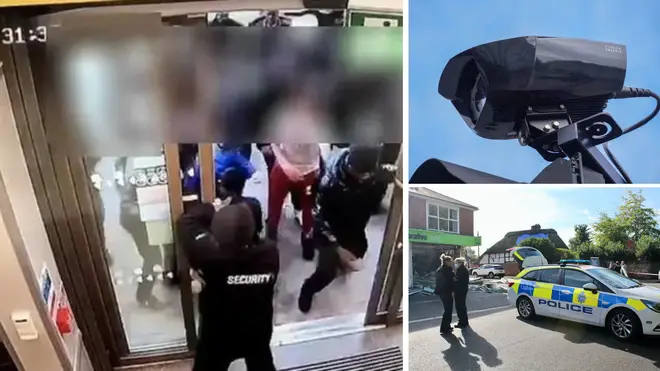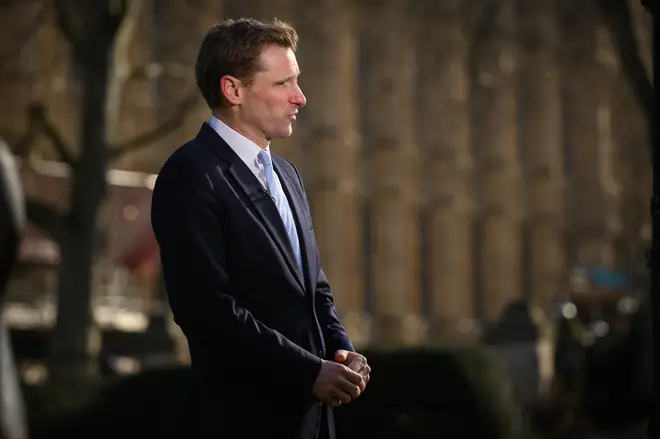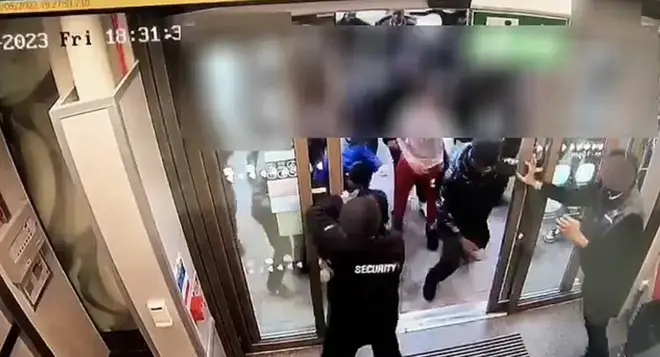
Ben Kentish 10pm - 1am
3 October 2023, 07:00 | Updated: 3 October 2023, 07:05

Thieves caught on CCTV will be cross-referenced against official databases as part of a new crackdown on crime, the policing minister has said.
Policing minister Chris Philp announced on Monday that he will be asking police to check the facial images of criminals against the Home Office’s passport and immigration records, including 50 million passport holders and national computers.
Speaking at a fringe meeting at the Conservative Party conference in Manchester on Monday, Mr Philp said the move could be a “game-changer” in the crackdown on such crimes.
Advanced facial recognition technology can now identify matches even when images are blurred or only partially show a face, Mr Philp added.
Home CCTV security systems and video doorbells will also be used in the case of home thefts and burglaries.
The move comes as part of a “zero tolerance” approach to crime agreed by police chiefs earlier this year, as constables promised to investigate every crime reported with a “reasonable lead” in a bid to clamp down on “low level” offences.
“I’m going to be asking police forces to search all these databases not just for shoplifting but for crime generally,” Mr Philp said.
“It could be game-changing.”

He also said that he had been given a demonstration of the facial recognition technology by the Metropolitan Police Commissioner, Sir Mark Rowley.
However, it remains unclear how effective the technology will be in cases where criminals are wearing masks or covering their faces.
Police can compare images against the Passport Office’s records of all British nationals who hold travel documents.
The minister said his goal is to put together an integrated system of individual databases so police can check any new images against every single database in one move.
It comes after it was reported that just one in seven shoplifters were charged in the last year in England and Wales. Among those, 54% were closed after detectives failed to identify a suspect while other difficulties caused a further 20% of cases to collapse.
Reports suggest that a total of £1bn is being stolen from stores each year and an extra £700m is being spent on security measures in these retailers.
“If we don’t have a zero-tolerance approach, we’re going to end up escalating into what we’re seeing in some American cities which is completely unacceptable,” the policing minister added.

“I don’t want that happening on the watch of this Government. I’m sure the police don’t want that to happen, either.”
He has also encouraged members of the public to use their powers to make a citizen's arrest in instances where it is safe to do so.
“If you do just let people take stuff and walk out without proper challenge, including potentially a physical challenge, then again, it will just escalate,” he said.
Mr Philp has also called on police to attend the scene of thefts and burglaries with the “highest grade of emergency response” when retailers report they have detained a suspected thief.
Paul Gerrard, the Co-op’s director of public affairs, revealed at the fringe meeting that retailers’ research that the cost of shoplifting adds a 6p ‘transaction tax’ to every customer’s purchase.
He also said that police are currently failing to attend 80 per cent of cases where a shoplifter has been detained, according to retailers’ research.
Of the Co-op’s 2,500 stores, Mr Gerrard said on a standard day there would be 1,000 offences committed, 150 members of staff would face verbal abuse and four or five would fall victim to violent attacks that may include the use of knives, iron bars and syringes.